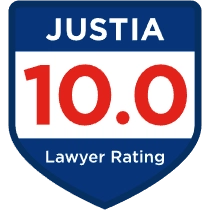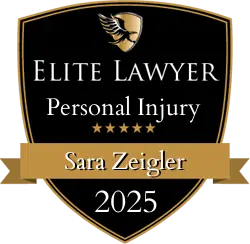Throughout the country, different states follow different auto insurance laws. The majority of states are tort, or fault, states.
This means that after a car accident, victims must file a claim with the at-fault driver’s auto insurance company. However, a handful of states follow no-fault rules. In these states, fault is not considered unless the injuries resulting from a crash are extremely serious. In all other cases, drivers must file a claim with their insurer to receive compensation for a crash.
So, is West Virginia a no fault state? Below, our West Virginia car accident attorney explains.
Is West Virginia a No Fault State for Auto Accidents?
Like the majority of states in the country, West Virginia is a fault state for car accidents. All drivers are required to purchase and maintain minimum auto insurance requirements. After an accident, victims can then file a claim with the at-fault driver’s insurance company. The insurance company will then provide compensation for the victim’s medical expenses, lost income, and other losses.
If you are wondering, ‘Is WV a no fault state?’ it is not. Additionally, while the process for claiming compensation may seem relatively straightforward, it is not.
How Does Compensation Work in West Virginia?
When filing a claim with an at-fault driver’s insurance company, you must prove that the other motorist is, in fact, at fault. This means showing the other driver acted negligently or carelessly.
Speeding, driving while distracted, impaired driving, and improper lane changes are just a few common examples of negligence. If you can prove another driver was at fault, you may be able to file a claim for compensation.
Compensation after a car accident is divided into two categories: economic and non-economic damages. Economic damages refer to losses that have a dollar figure that can be calculated. These damages include medical expenses, lost income, loss of earning capacity, and property damage.
Non-economic damages, on the other hand, do not have a dollar value that can be calculated. These damages include losses such as pain and suffering, loss of enjoyment of life, and loss of consortium.
The amount you can receive for this category of damage depends largely upon the skill and persuasiveness of your attorney.
When filing a claim with the at-fault driver’s insurance company, you can claim compensation for all of your economic and non-economic damages, and it is up to you and your attorney to prove and quantify them to the satisfaction of the insurance company.
How Insurance Works in No-Fault States
Although West Virginia is not a no-fault state, there are a handful of states in the country that are. In those states, drivers must file a claim with their own insurance company after a crash, regardless of which motorist is at fault. Motorists in no-fault states typically purchase and carry personal injury protection (PIP) benefits. Drivers must exhaust their PIP benefits first before filing a lawsuit against a negligent driver. Motorists must also typically show that their injuries meet a certain threshold, meaning they are very serious.
Due to the fact that accident victims do not necessarily have to prove fault in no-fault states, this type of insurance sounds very beneficial. PIP benefits do have some drawbacks, though. Although these benefits will cover medical expenses and a portion of a person’s lost income, they do not provide any non-economic damages, such as pain and suffering. PIP benefits also do not always provide compensation for property damage, so a lawsuit may be required anyway.
Comparative Fault in West Virginia
West Virginia law includes a modified comparative fault standard. This principle of law recognizes and deals with the fact that more than one party may be at fault for a crash. For example, a driver may be distracted and not notice that a speeding vehicle is not slowing down and getting ready to stop for a red light. As the distracted motorist drives through the intersection, the speeding driver may run the red light, crashing into the other vehicle.
In the above example, both drivers carry a certain degree of fault. Under West Virginia’s comparative fault law, accident victims can still file a claim for damages if they are found 50 percent or less at fault for a crash. Any damages they receive, though, are reduced by the driver’s percentage of fault.
Staying with the above example, the distracted driver may be found 20 percent to blame for the crash because they were not focused on the road. The speeding driver may be found 80 percent to blame. If the distracted driver filed a claim and was awarded $100,000, they would only receive $80,000 because their damages would be reduced by their same percentage of fault.
Proving Fault After a Car Accident in West Virginia
As a fault state, you must prove that another driver was negligent after a crash in West Virginia. This requires strong evidence. Some of the best types of evidence in car accident cases are as follows:
- Police reports: You must call the police after any car accident. Law enforcement will visit the scene and write and file a report, which may indicate that the other driver is at fault.
- Photos and videos: At the scene of any accident, it is important to take pictures and video footage of damage to the vehicles, injuries, and other pertinent information, such as skid marks on the road.
- Witness testimony: There are often eyewitnesses who see car accidents occur. They have nothing to lose or gain in a car accident claim, and so, their testimony carries significant weight.
- Expert testimony: Testimony from an expert, such as an accident reconstruction specialist, can show how an accident occurred and that the other driver was at fault.
- Medical records: It is also important that you visit a doctor after any car accident to receive treatment for your injuries. Not only is your health the most important priority, but medical records will also document the nature and severity of your accident.
Our Car Accident Lawyer in West Virginia Can Prove Your Case
After a crash, you must speak to a West Virginia car accident lawyer. At Kaufman & McPherson, our experienced attorney can collect the evidence to prove your case so you receive the full and fair settlement you deserve. Contact us today to schedule a free case evaluation and to learn more about how we can help.









